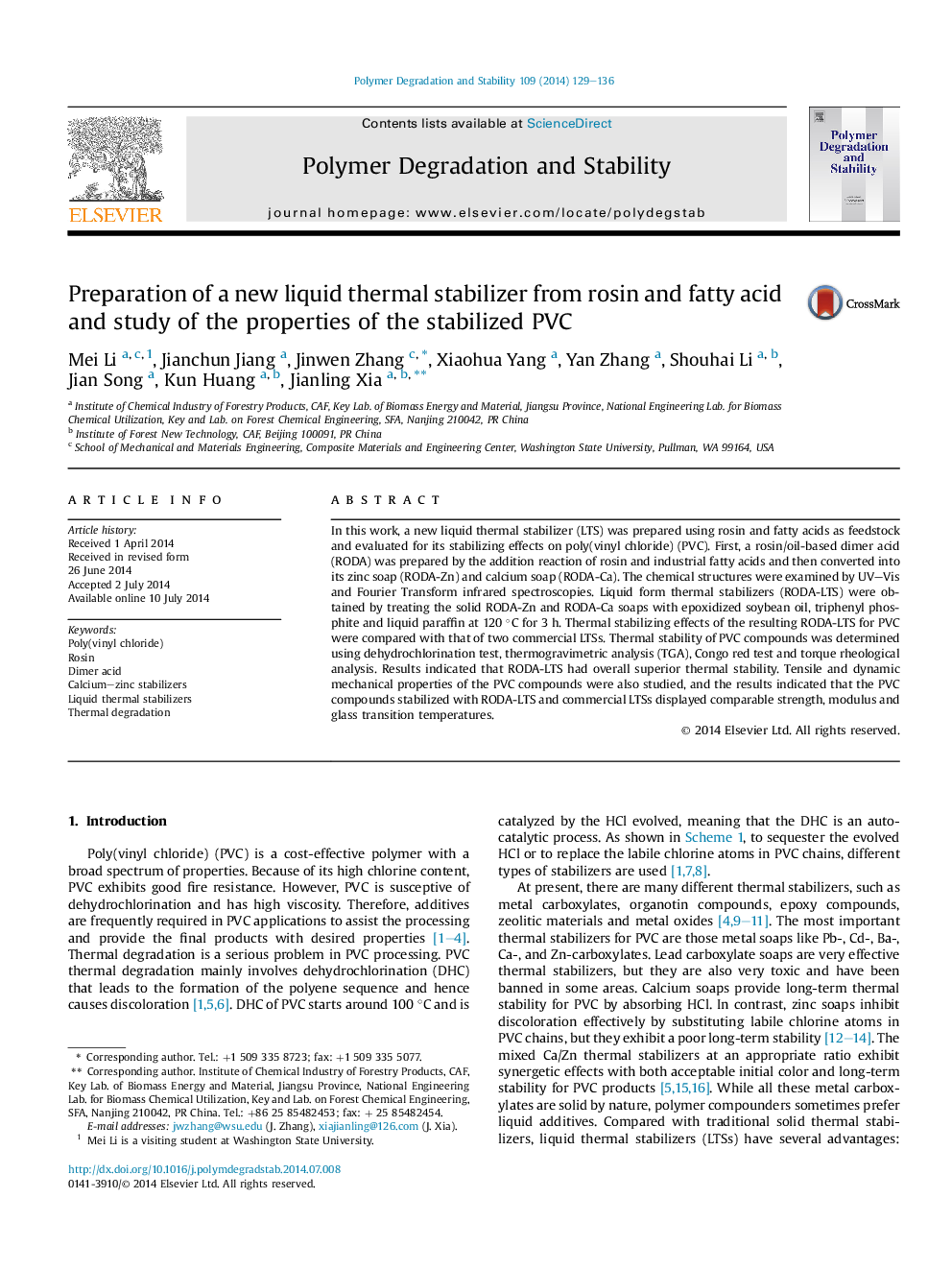| Article ID | Journal | Published Year | Pages | File Type |
|---|---|---|---|---|
| 5201721 | Polymer Degradation and Stability | 2014 | 8 Pages |
Abstract
In this work, a new liquid thermal stabilizer (LTS) was prepared using rosin and fatty acids as feedstock and evaluated for its stabilizing effects on poly(vinyl chloride) (PVC). First, a rosin/oil-based dimer acid (RODA) was prepared by the addition reaction of rosin and industrial fatty acids and then converted into its zinc soap (RODA-Zn) and calcium soap (RODA-Ca). The chemical structures were examined by UV-Vis and Fourier Transform infrared spectroscopies. Liquid form thermal stabilizers (RODA-LTS) were obtained by treating the solid RODA-Zn and RODA-Ca soaps with epoxidized soybean oil, triphenyl phosphite and liquid paraffin at 120 °C for 3 h. Thermal stabilizing effects of the resulting RODA-LTS for PVC were compared with that of two commercial LTSs. Thermal stability of PVC compounds was determined using dehydrochlorination test, thermogravimetric analysis (TGA), Congo red test and torque rheological analysis. Results indicated that RODA-LTS had overall superior thermal stability. Tensile and dynamic mechanical properties of the PVC compounds were also studied, and the results indicated that the PVC compounds stabilized with RODA-LTS and commercial LTSs displayed comparable strength, modulus and glass transition temperatures.
Related Topics
Physical Sciences and Engineering
Chemistry
Organic Chemistry
Authors
Mei Li, Jianchun Jiang, Jinwen Zhang, Xiaohua Yang, Yan Zhang, Shouhai Li, Jian Song, Kun Huang, Jianling Xia,
